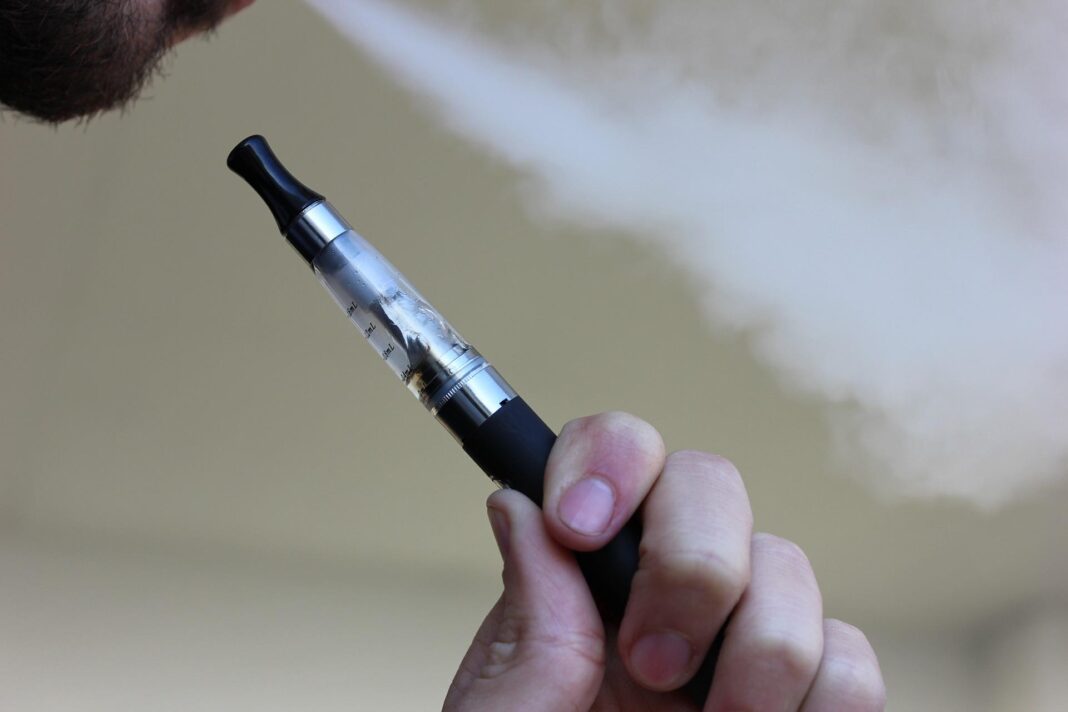The use of e-cigarettes and vaporizers among teens is on the rise, reports the Haliburton, Kawartha Lakes, Pine Ridge District health unit (HKPR).
“Warnings and charges have gone up dramatically,” said Robert Hewitt, an HKPR tobacco control officer, at an April 21 board meeting.
The unit has issued 270 warnings for noncompliance and conducted 267 inspections so far in 2022. In 2018, they completed 742 inspections and issued 49 warnings.
Infractions include selling tobacco or vaporizer products to underage people, smoking in prohibited areas or using tobacco or cannabis products while underage.
“Vaping is our predominant concern right now,” said Hewitt.
There isn’t long-term research on the health impacts of e-cigarettes and vaporizers, but early data shows chemicals they emit can cause lung disease, as well as cardiovascular (heart) disease.
Many vaporizer products contain nicotine, the extremely addictive chemical found in cigarettes.
Hewitt pointed to Canadian studies which show 15 per cent of youth aged 15-19 have accessed vaporizer products in the last 30 days. He said teens report it’s “extremely easy” to acquire vapes.
Dysart et al mayor Andrea Roberts asked how adult vaping habits might influence a teen’s choice to smoke.
“If the youth are watching adults and think it’s ok because it’s legal for them.. what more could we be doing?” she asked.
Hewitt said, “Health Canada kind of missed the boat. These devices have been around for several years, and went unregulated.”
Even now, he said high schoolers report that it’s easy to acquire vaporizers while underage.
Pandemic work remains
HKPR chief medical officer of health Dr. Natalie Bocking said COVID-19, “is not something that is going to end.”
Instead, she said that means incorporating COVID-19 responses and activity into regular programming.
“At some point in time we need to plan how this is going to look in the future,” she said.
Bocking said Ontario governmental funding, covering extra staffing costs, COVID-19 personal protective equipment and more, won’t sustain a long-term pandemic response.
Some funding is yet to arrive, such as a $165,200 provincial injection into COVID19 programming retroactive for the 2021 calendar year.
COVID-19 case counts in the region are now “just the tip of the iceberg,” Bocking said, since most cases go unrecorded. She urged HKPR residents to receive their third or fourth COVID-19 shot to increase protection against severe illness.
Nursing incentives raise funding issues
Bocking said a new provincial retention bonus for nurses who worked through COVID-19 points to gaps in health unit funding.
“We absolutely acknowledge the role nurses have played in our response,” she said of the up to $5,000 bonus for nurses.
But she added, “in some ways it challenges the health unit and management as we have a number of other professions who have helped with the pandemic response.”
Bocking said the unit must continue to “demonstrate the tremendous role health units have … in [COVID-19] response.”





